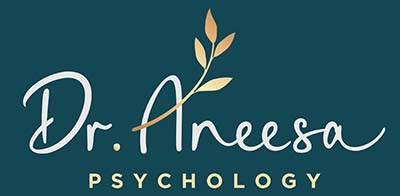A Psychologist Explains: How Menopause Can Trigger Anxiety & How CBT Can Help
Let's talk about menopause, a topic that often gets reduced to hot flashes and mood swings. But there's another unwelcome guest at the menopause party: anxiety. It's a sneaky one, showing up as racing heartbeats, intrusive thoughts, and that general feeling of being on edge. And guess what? You're not alone. Anxiety during menopause is incredibly common, but unfortunately not well acknowledged by many doctors. If you’re tired of being fobbed off by your GP about all the ways menopause may be affecting your mental health, then keep reading!
The Hormone Rollercoaster and Your Brain:
Menopause is all about hormonal changes, especially a dip in estrogen. Estrogen plays a role in regulating mood-influencing chemicals in the brain. When these levels drop, it can create a perfect storm for anxiety. Think of it as a recipe for feeling jittery and stressed. With all of the changes in hormone levels, of course you’ve noticed an increase or onset of feelings of anxiety since starting menopause! Menopause can contribute to mental health symptoms just as much as physical symptoms, so it’s important to be patient with yourself through the process and adjust your expectations of yourself accordingly.
All the Ways Menopause Can Contribute to Anxiety:
- Physical symptoms: Hot flashes, night sweats, and disrupted sleep can leave you feeling exhausted and irritable, making you more vulnerable to anxiety. Imagine waking up drenched in sweat, heart pounding – not exactly a recipe for calmness. These physical discomforts can also make it harder to relax and unwind, further contributing to anxiety.
- Fear of the unknown: Menopause can bring a wave of changes, both physical and emotional. This uncertainty can be a major anxiety trigger. You might worry about losing your fertility, your changing body, or even your sense of self. You might also have questions about what to expect in terms of your health going forward. This lack of control can be a breeding ground for anxiety.
- Body image changes: Weight gain and body shape changes are common during menopause, and these can lead to feelings of insecurity and low self-esteem, which can worsen anxiety. Your hair may also start to thin and you may experience changes in your libido. All of these physical changes together can really impact on your self image and self esteem, and understandably so!
- Brain fog and forgetfulness: Fluctuating hormones can affect memory and concentration. This can be frustrating and lead to anxiety, especially if you worry about cognitive decline or dementia. Suddenly forgetting where you put your keys or struggling to recall a name can be a real source of stress. If you have trouble finding the right words mid conversation, suddenly forget what you were saying, and find yourself struggling to articulate yourself, this can also contribute to social anxiety.
- Changes in mood: Estrogen dips can also contribute to mood swings and irritability. Feeling down or easily frustrated can make you more susceptible to anxiety triggers. You might find yourself snapping at loved ones or feeling overwhelmed by everyday tasks. These mood swings can strain your relationships and make you feel even more anxious and isolated, particularly if those around you can’t understand the reasons for your mood fluctuations.
Breaking Free from the Anxiety Cycle: Enter CBT
The good news? You don't have to white-knuckle your way through this. There are ways to manage anxiety and reclaim your peace of mind. Here's where Cognitive Behavioral Therapy (CBT) can be helpful in navigating your way through menopause induced anxiety.
What is CBT?
CBT is a NICE recommended form of talk therapy that helps you identify and challenge negative thought patterns that contribute to anxiety. Think of it as a mental fitness program. A licensed psychologist trained in CBT will work with you to develop a personalized toolkit of strategies to manage your anxiety.
How can CBT help with menopausal anxiety?
- Identifying triggers: A CBT therapist can help you pinpoint situations, thoughts, or physical symptoms that trigger your anxiety. Once you understand your triggers, you can start to develop strategies to cope with them more effectively.
- Challenging negative thoughts: CBT helps you replace those unhelpful "what ifs" and negative self-talk with more realistic and empowering thoughts. For example, instead of thinking "I'm having a heart attack" during a hot flash, you can learn to tell yourself "This is just a hot flash, it will pass."
- Developing coping skills: You'll learn practical strategies to manage anxiety in the moment, like relaxation techniques and deep breathing exercises. These techniques can help you calm your nervous system and reduce physical symptoms of anxiety.
- Building resilience: CBT can also help you develop coping mechanisms for dealing with the broader challenges of menopause, such as body image changes or sleep disturbances.
CBT is like giving yourself a toolbox filled with effective ways to manage anxiety. Studies show CBT can be more effective than medication in treating mild to moderate anxiety, and the skills you learn can last a lifetime if you keep up with them after therapy has ended.
Remember: Menopause is a natural part of life, and anxiety doesn't have to steal your joy. By understanding the link between hormones and anxiety, and by using tools like CBT, you can navigate this transition with more calm and confidence.
If you’re ready to take the next step, please get in touch by completing the contact form on the website today!



















